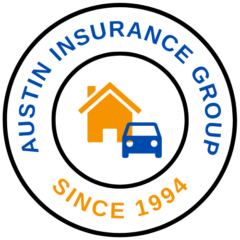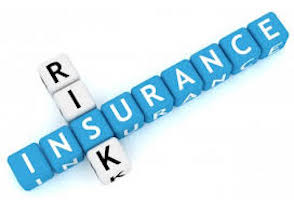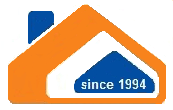
24/7 Roadside Assistance
Progressive Roadside Assistance 24/7 is an extra coverage you can add to your policy. Examples of services provided include towing, winching, jump-starts, fuel delivery, vehicle lockout, and flat tire. Roadside assistance is available for auto insurance policies as well as motorcycles, RVs, and commercial vehicles.
What does roadside assistance cover?
Roadside assistance covers the same events whether you drive a car, motorcycle, RV, boat or a commercial vehicle. However, there are some unique aspects for each type. Whether you’re in your own driveway or on the road, you can get help if your vehicle has stopped running due to non-accident-related events (e.g., electrical or mechanical breakdown).
- Vehicle towing: We can arrange to tow your vehicle anywhere within a 15-mile radius. If there isn’t a repair shop within 15 miles, we will tow it to the nearest qualified repair shop. If you choose to have your vehicle towed to a shop that isn’t the closest one, you will need to pay for the extra mileage. Keep in mind, you’re responsible for the cost of any parts and/or repairs made to your vehicle.
- Winching service: If your car is trapped in mud, water, snow, or sand (within 100 feet of a road or highway), we’ll pull your car out with a motor-powered cable or chain.
- Battery jump-start: We will jump-start it at the scene to help get you on your way.
- Fuel delivery: If you run out of gas, we’ll deliver fuel directly to your vehicle. The delivery and service is free. You only pay for the cost of the fuel.
- Battery charge for electric cars: If you run out of charge, we can arrange to tow your vehicle anywhere within a 15-mile radius, or to the nearest qualified charging facility if there isn’t one within 15 miles. You will only pay for the cost of the charge.
- Locksmith service: If your keys are stole, lost or accidentally locked inside your vehicle, we dispatch a qualified service provider. You’re only responsible for keys and/or the costs to replace them.
- Flat tire change: No need to panic if you have a flat. A roadside professional can put the spare tire on your vehicle at the scene for no cost as long as you provide a spare.
- On-scene labor: We provide up to one hour of labor if your car is disabled. If you need more than an hour, you can simply choose to pay for any extra costs or have your vehicle towed to the nearest qualified repair shop.
Note: There may be a limit to the number of roadside events your policy covers. Additionally, in some states, such as Virginia and North Carolina, Roadside Assistance coverage is subject to limits stated on your policy.
Some services described below are only available to customers who purchased coverages such as Coillision, Comprehension, Rental Reimbursement, Medical Payments, etc., before their loss. Coverage is subject to the terms of your policy. Please refer to your policy to verify which coverages you have.
Motorcycle Roadside Assistance
In addition to roadside assistance for your motorcycle, Roadside coverage extends to any vehicle used for towing/hauling your motorcycle, even if it’s not insured by us.
Boat Roadside Assistance
Boat Roadside coverage also extends to any vehicle towing your boat, even if it’s not insured by Progressive, as long as the trailer is listed on your policy, too.
Please note that this coverage does not apply on the water. Progressive offers a separate coverage for on-water towing called Sign & Glide®. This pays for on-water towing, jump-starts, soft ungroundings, and fuel delivery.**Read the associated disclosure for this claim.
RV Roadside Assistance
Along with roadside assistance for your RV, your coverage also extends to any vehicle being used to tow/haul your travel trailer, camper, fifth wheel, etc. even if it’s not insured by us.
Trip Interruption coverage for motorcycle and boat
You can add Trip Interruption to pay for food, lodging, and transportation expenses up to $500 if your motorcycle breaks down more than 100 miles from home. For boats, Trip Interruption applies if the trailer carrying your boat, or the vehicle towing your boat trailer, breaks down more than 100 miles from home. This is especially helpful if you break down over the weekend and the local repair shops don’t open until Monday. You must have roadside assistance to be able to buy trip interruption.
Heavy Truck Roadside Assistance
Heavy Truck Roadside Assistance can help you get back on the road and back to business. Call 877-776-2436 to add Heavy Truck Roadside Assistance to your commercial policy.
How to add Roadside or extra coverages
Just log in to your policy online or call 1-800-776-4737 and you can add these coverages, though coverage may not be effective the same day.
How to use it?
If you have Roadside Assistance coverage on your policy, the easiest way to use it is to call Progressive at 1-800-776-2778. We’ll send a service provider to you to get you up and running as soon as possible.
It’s that easy!
Whether you’re in your on the road or in your own driveway, a Progressive Roadside Assistance customer service rep is ready to help. We’ll send you some company right away.
Please note: Emergency Roadside Assistance services are provided by Agero and its affiliate companies. Some services described above are only available to customers who purchased coverages such as Comprehensive, Collision, Rental Reimbursement, Medical Payments, etc., before their loss. Coverage is subject to the terms of your policy. Please refer to your policy to verify which coverages you have.
If you do not have this coverage on your policy, you can call customer service at 1-800-876-5581 to add this valuable coverage. l
If you do not have Progressive, please call our Local Authorized agent at Austin Insurance Group 1-512-339-2901 to find out how to get a new policy started.


 Al-lrisk insurance or a named peril insurance policy, which is better in a given situation?
Al-lrisk insurance or a named peril insurance policy, which is better in a given situation?
